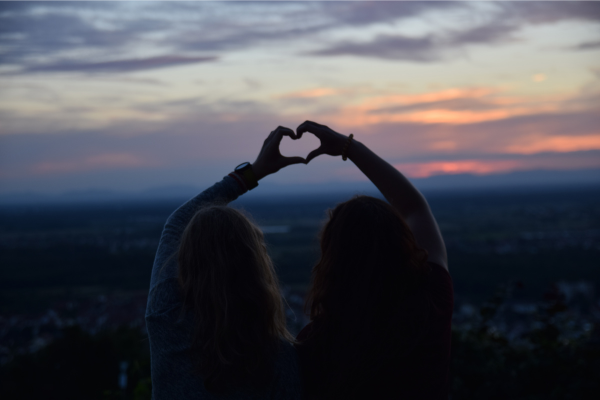![]()
By Dr. Justin
Sexual Well being

Most animals have a mating season. They solely do it at particular occasions of 12 months that coincide with fertile intervals. In contrast, people are what scientists name “steady breeders,” that means that we’re DTF all 12 months lengthy. We will do it any time, anyplace. Nevertheless, whereas we don’t have a restricted calendar for intercourse, human sexual habits nonetheless has a seasonality to it. It seems that folks constantly have extra intercourse at sure occasions of 12 months, and fewer at others. Particularly, what the info reveals is that summertime appears to coincide with a peak in sexual exercise. So what’s the take care of that? Let’s discover what the analysis says about attractive time in the summertime.
The Science of Summer season Intercourse
Earlier than we get into the explanations behind why individuals have extra intercourse in the summertime months, let’s first take a look at the proof supporting the concept there’s a seasonal shift in sexual habits. There are a number of items of knowledge suggesting that we get sizzling for warm climate. For instance, should you take a look at our on-line sexual habits, analysis finds that we seek for extra porn in the summertime. Searches for on-line relationship rise on the identical time, too. Likewise, taking a look at gross sales knowledge for safer-sex instruments, there has traditionally been a rise in condom purchases in the summertime months. Contemplating knowledge collected by sexual well being clinics, what we see is that folks report having had a bigger variety of intercourse companions after they are available for STI testing in the summertime in comparison with different occasions of 12 months. That is true for each women and men throughout sexual orientations. In keeping with this, clinic knowledge additionally finds that the percentages of being recognized with a sexually transmitted an infection is highest in the summertime. Briefly, all the proof means that we’re hornier and having extra intercourse (and extra companions) in the summertime. To grasp why this occurs, although, we have to take a look at this by means of a biopsychosocial lens as a result of there are organic, psychological, and social elements that each one contribute to this.
The Function of Biology: Publicity to Daylight Boosts Testosterone
Researchers have discovered that publicity to UVB mild appears to immediate adjustments in hormones and sexual habits in animals and people alike. For instance, in animal research, mice which might be uncovered to UVB mild reveal a rise in intercourse hormones. Additional, each female and male mice subsequently interact in additional mating habits. Analysis on people has discovered one thing comparable. In a research the place women and men have been requested to both keep away from daylight publicity for 2 days vs. spend a few half hour within the solar every day, blood samples confirmed an increase in testosterone on the times individuals acquired extra solar. Daylight publicity subsequently seems to have a direct physiological affect on the physique. And since summer season is the sunniest time of 12 months, that’s once we’re going to expertise the largest impact. So a part of the rise in summer season intercourse is hormonal—we simply are inclined to have extra testosterone in our our bodies, which opens the door to extra emotions of sexual arousal and want. But it surely’s not nearly testosterone. Daylight additionally boosts manufacturing of the neurotransmitter serotonin, which performs an vital function in regulating temper (therefore why the most well-liked anti-depressants are designed to focus on serotonin). It stands to purpose that if we’ve extra of those feel-good neurotransmitters in our system in the summertime, which may additionally open the door to extra sexual exercise.
The Function of Psychology: Excitation Switch
Throughout the summer season months, we have a tendency to interact in additional thrilling and novel actions. For instance, that is typically the time of 12 months when individuals take holidays, go to amusement parks, and have interaction in enjoyable outside actions, like swimming. Once we take part in new and thrilling issues like this, it has the impact of accelerating our physiological arousal, which might rework into (or amplify) sexual arousal. Psychologists seek advice from this as “excitation switch,” and it mainly signifies that pleasure from one state of affairs is intensifying pleasure in one other state of affairs. For instance, research have discovered that when individuals have simply participated in one thing intense (resembling exercising or using a curler coaster), they subsequently expertise a rise in sexual attraction to different individuals. In different phrases, should you do one thing physiologically arousing after which meet somebody new, the percentages of attraction rise. Past excitation switch, there’s additionally only a broader shift in our sexual psychology in the summertime resulting from the truth that it’s a interval throughout which many people have extra leisure time. Taking day without work from college or work could make us really feel much less careworn and extra relaxed, which might create extra alternatives for us to really feel want and arousal.

The Function of the Setting: Horny Cues Abound
Assume for a second about the way you costume in a different way in the summertime in comparison with colder occasions of 12 months. Odds are, you put on much less clothes! Summer season naturally lends itself towards a extra sexualized surroundings. It’s a time while you’re going to see loads of skimpy outfits, shirtless runners, and other people in bathing fits. In different phrases, the surroundings round us is a really totally different one and we could merely be seeing extra cues that set off arousal. This impact could also be amplified should you’re touring or taking a seashore trip the place you may be seeing and assembly loads of new and engaging individuals. On the identical time, simply being in a novel surroundings is usually a turn-on in and of itself. Perhaps you’re staying in an attractive lodge room, swimming beneath a waterfall, or taking a late-night dip in a sizzling tub. Summer season holidays typically take us to locations we affiliate with ardour and romance, which additional add to the attractive cues.
Takeaways
The information are clear: individuals have extra intercourse and customarily really feel hornier in the summertime in comparison with different occasions of 12 months. So should you’ve ever seen that your sexual habits tends to be seasonal, you’re not alone! Nevertheless, there’s isn’t only one easy purpose behind this. A potent mix of organic, psychological, and environmental elements work collectively to make summer season the sexiest season.
References:
Parikh, R., Sorek, E., Parikh, S., Michael, Ok., Bikovski, L., Tshori, S., … & Levy, C. (2021). Pores and skin publicity to UVB mild induces a skin-brain-gonad axis and sexual habits. Cell Stories, 36(8), 109579.
Cornelisse, V. J., Chow, E. P., Chen, M. Y., Bradshaw, C. S., & Fairley, C. Ok. (2016). Summer season warmth: A cross-sectional evaluation of seasonal variations in sexual behaviour and sexually transmissible illnesses in Melbourne, Australia. Sexually Transmitted Infections.
Seasonal adjustments in Google search tendencies for pornography, prostitution, and on-line relationship: Markey, P. M., & Markey, C. N. (2013). Seasonal variation in web key phrase searches: A proxy evaluation of intercourse mating behaviors. Archives of Sexual Habits, 42(4), 515-521.
Meston, C. M., & Frohlich, P. F. (2003). Love at first fright: Associate salience moderates roller-coaster-induced excitation switch. Archives of Sexual Habits, 32, 537-544.


